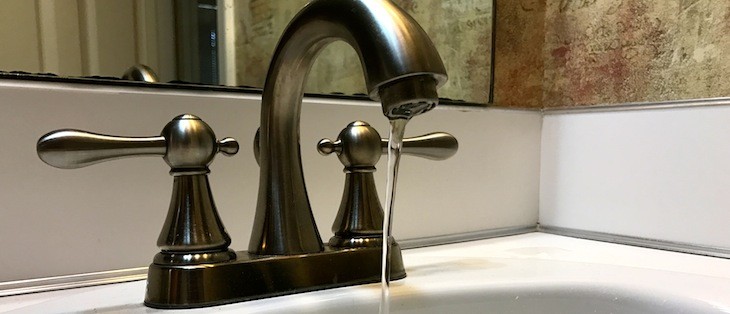Responses to water billing issues presented to Fort Smith Board
by April 23, 2019 6:47 pm 661 views

The Fort Smith Board of Directors were told Tuesday (April 23) that many issues residents have with high bills since the first of the year have been resolved. The board addressed citizens’ concerns over unusually high water bills at the April 2 board of directors meeting.
Some water bills among the city’s 37,153 customers ballooned beyond the normal in the first quarter of the year as the city continued to install new meters, began using a new billing software system, and shifted the billing duties from the finance department to the utilities department. Those were just some of the “perfect storm” issues that happened at the same time to cause water bill errors, noted Director Robyn Dawson at the April 2 meeting.
Of the 1,253 adjusted bills since the billing storm began, 222 were billing errors, 298 were water meter reading errors, and 587 were leaks. Also, the new meters are on average 99% accurate, with the meters being replaced averaging 85% accuracy. Dawson’s response to the numbers cited by Utilities Director Jerry Walters and city Communications Manager Karen Santos was that water bills at most should be around 15% higher on average, adding that leaks, billing errors and other issues are “not going to make your bills double, or triple or quadruple.”
In a presentation to the board Tuesday, Walters said when billing and collections were transferred from the Finance Department to the Utility Department in early January, business processes in the old system were not fully integrated to the new system, which meant a high read report was not created in the new system and old information was transferred in as current information.
The old information being transferred in as current information led to issues with auto payments and meter readings. Where customers had set up auto payments at one time but then stopped them, the auto payments resumed without notice to the customer. When new meters were installed, they reverted to zero on the amount of water used. In instances when a new meter was installed partially into a billing cycle, rather than just add the amount from zero to the new reading to what had been read previously on the old meter. It cycled through from the old reading until it would come back to zero, as if an extremely large amount of water had passed through the meter, Walters explained.
The utility department responded to issues that arose by establishing a call center, developing a new high read report, began building an internal process around the new system, developed standard operation procedures to standardize business practices and brought in vendor representatives for training. The call center started with eight utility staff members, but is now manned by contracted call center staff, Walters said.
“This has helped. Now the people manning that center are trained specifically in customer service,” he said.
The department also formed a “Tiger Team” that meets weekly to address issues as they arise.
“We track issues as they come up, work them, deal with them and resolve them,” Walters said.
He also noted that penalties for late payments are suspended as are water turn offs.
“So when you read on social media that water is being turned off (because someone isn’t paying an unusually high bill), it is incorrect. We will get back to that eventually, but now is not the time to do that.”
Board members commended the city for working to fix the problem.
“The crisis is over. That’s not to say we won’t have some residual issues in the future, but the crisis is over,” said Mayor George McGill.
